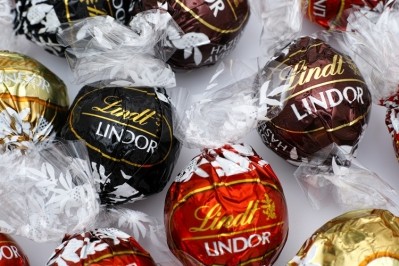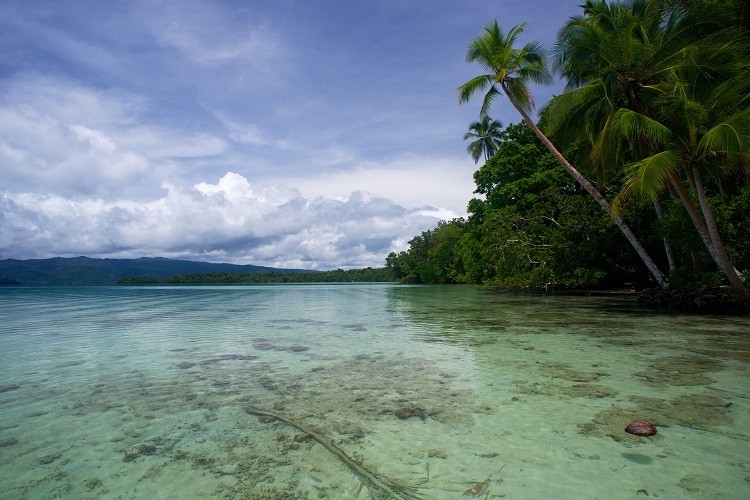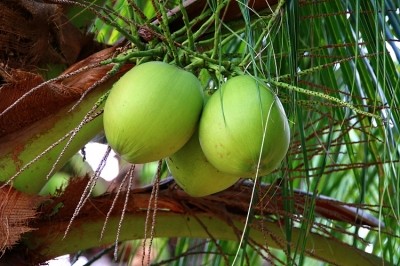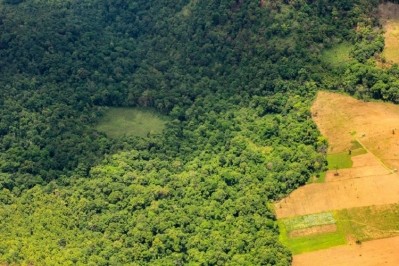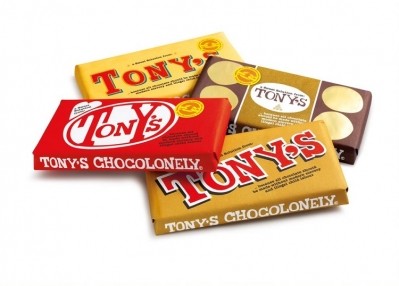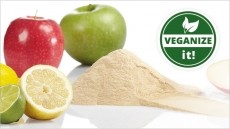Lindt tackles coconut oil sustainability: ‘In the consumer’s mind, palm oil is still the bad guy’
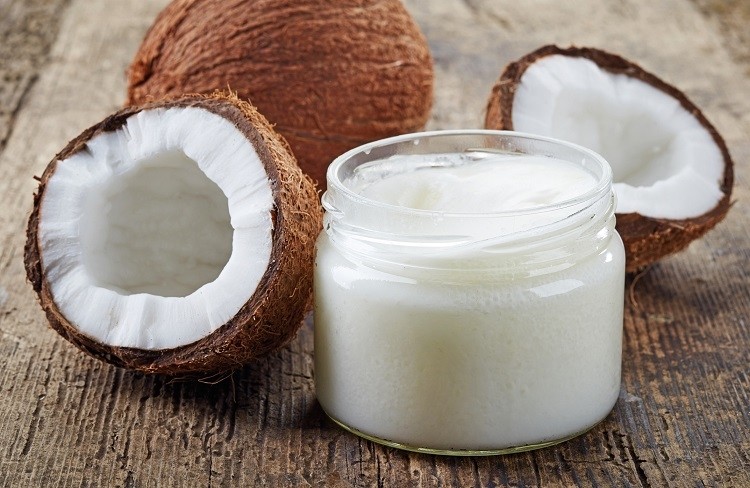
When asked recently whether Lindt & Sprüngli consumers are inquisitive about coconut oil’s sustainability credentials, the company’s Head of Sustainability, Leonie Brühlmann, responded: “Actually, no. We [haven’t seen] any questions about coconut oil yet.
“I think in the consumer’s mind, palm oil is still kind of the ‘bad guy’. And there are not many reports [covering] the sustainability issues around coconut oil so far.”
Another reason is that coconut oil is not a key ingredient in chocolate: the Swiss chocolatier uses it in some of its chocolate and praline fillings, but not in its tablets.
So why is Lindt throwing the spotlight on coconut oil? According to Brühlmann, who is also Managing Director of the Lindt Cocoa Foundation, a raw material risk assessment undertaken by the company revealed ‘various sustainability challenges and issues’ associated with the ingredient.
“In the future, it will be one of the raw materials we will tackle more strategically,” she told delegates during a webinar organised by environmental NGO Earthworm.
‘Flying under the radar’ of sustainability
Global demand for coconut oil is on the rise. According to Allied Market Research, in 2019 the global industry was worth $13bn. It is predicted that by 2024, this figure could increase to $31bn.
Such rapid growth in demand can be explained by the ingredient’s popularity amongst health-conscious consumers, according to Member Manager at Earthworm Foundation Mathilde Xicola. And this has been boosted by consumer goods companies marketing coconuts as a ‘healthy option’, she told delegates during the webinar.
Further, there is a ‘global perception’ that coconut oil is more sustainable than other vegetable oils, including palm oil, Xicola continued. “Although, the details of this comparison are neither clear nor concrete.”
Therefore, to date, coconut has largely ‘flown under the radar’ when it comes to sustainability and responsible sourcing, despite ‘global knowledge’ that the majority of coconut production comes from independent smallholder farmers, we were told. “The percentage varies from 70-95% depending on the region. And we know that these independent smallholders receive a very low price for their harvest in an informally managed sector.”
Lindt’s Brühlmann is unconvinced coconut oil will continue to go unnoticed when it comes to sustainability. “Demand for coconut oil is increasing and I think…as this increases and there is increased deforestation, [there will be] more media attention on coconut oil sustainability issues.”
Spotlight on the Solomon Islands
Lindt sources its coconut oil from one of the world’s biggest coconut exporters: the Solomon Islands.
There, in the South Pacific, the coconut tree is known as the ‘tree of life’, Brühlmann explained. This is because most communities consume and/or sell coconut products on a regular basis. “It is the largest crop in the agriculture sector.”
The majority of coconut farms are smallholder crops, ranging from just a few trees to a few hectares in size. The farming of copra – the coconut flesh used for coconut oil – is a vital source of income for over 40,000 households on the islands.
To farm copra, the coconuts are first collected from the ground, before being de-husked and opened. The next step involves drying out the coconut, using either the sun or fire as a heat source. Farmers then remove the kernels from their shells, set the copra out for a second day of drying, before transporting it on small boats to the buying station.
Key challenges facing the sector
Without any sustainability targets for coconut oil yet in place, in 2017 the Lindt Cocoa Foundation partnered with Earthworm Foundation to launch the Sustainable Coconut project in the Solomon Islands. Other partners include local crude oil supplier Pacific Rim Plantation Services/SICPL and Swiss coconut oil supplier Florin.
The Sustainable Coconut project marks Lindt’s first project centred around coconut oil. The initiative aims to build the livelihood and resilience of coconut producing families and communities towards a sustainable supply chain.
Together with Earthworm, Lindt identified a number of key challenges facing Solomon Islands’ industry. These include the political and social crises of the late 1990s which have led to economic crisis, eroded investment, and falling production. The country is in ‘extreme poverty’, Brühlmann told delegates, adding that income from copra production is used to finance ‘basic needs’. There is very little-to-no reinvestment in coconut oil crops, she added.
Further, copra from the Solomon Islands is largely of ‘low quality’, made with ‘low productivity’, and hindered by infrastructure limitations. Transport, she explained, is a ‘major barrier’: farmers are required to paddle for several hours between islands or rent a small motorboat for their haul.
Another key issue is climate change. Rising sea levels and intense storms make the seasons more unpredictable. Other social issues include poor sanitation, domestic violence, access to finance, low literacy, and limited higher education.
The Sustainable Coconut Oil programme puts coconut farming families from the Solomon Islands ‘at the forefront’, Brühlmann told delegates, in order to address some of these key challenges.
Progress to date
The programme’s key objectives lie in mapping the current and potential supply chain, reinforcing resilience through farmer and community training, and providing more efficient tools to farmers.
Earthworm has helped use satellite mapping on coconut plantations and executed village-based mappings. “This should help with transportation strategies for these villages to improve their efficiency and reduce their costs,” Brühlmann explained.
Indeed, Earthworm’s Ruality Co-lead, Yulia Hardini, explained that since the NGO started working on the coconut oil supply chain in Solomon Islands in 2018, it has collected data on at least 2,000 farmers to create a ‘traceability code’. This enables the not-for-profit to trace copra back to the farm level. “This will help us to develop a transport strategy,” the Ruality Co-lead explained. The goal, she continued, is that farmers can shorten their trips to the warehouse, saving both fuel and money.
“SICPL is trying to [encourage] bigger ships or small boats that usually bring other goods or fish [from the islands] to collect copra,” she continued. This means that during cyclones, farmers will continue to be able to sell their product.
The Sustainable Coconut Oil programme is also helping farmers through training and investment. Smallholders are learning how to ‘intercrop’, whereby two or more crops are grown simultaneously in the same field, to increase household income and improve nutrition, explained Lindt Cocoa Foundation’s Managing Director.
The initiative is also encouraging female farmers to become copra buyers and entrepreneurs and selecting farmers to become ‘leads’ in their communities. As Earthworm’s Hardini explained, this will help communities to maintain knowledge and solutions for farmers in the future.
Providing farmers with better access to appropriate tools and equipment is also a key part of the initiative. The project partners have been investigating solar dryers as an alternative drying method, Brühlmann explained. “It’s environmentally friendlier [than using fire], reduces the risk of deforestation, and can be less time consuming and more cost efficient for farmers.” Earthworm has also sourced new husking tools for smallholders working in the region.
Reflecting on Earthworm’s impact in the Solomon Islands between 2018 and Q3 2020, Hardini said four women are now empowered to become copra buyers, 109 lead farmers have been trained, and product quality has been improved by cutting copra moisture by 3.4%.
Further, the NGO’s efforts have improved resiliency, she said. More than 133 farmer families have adopted diversification activities which are generating additional income and improving food self-sufficiency.
